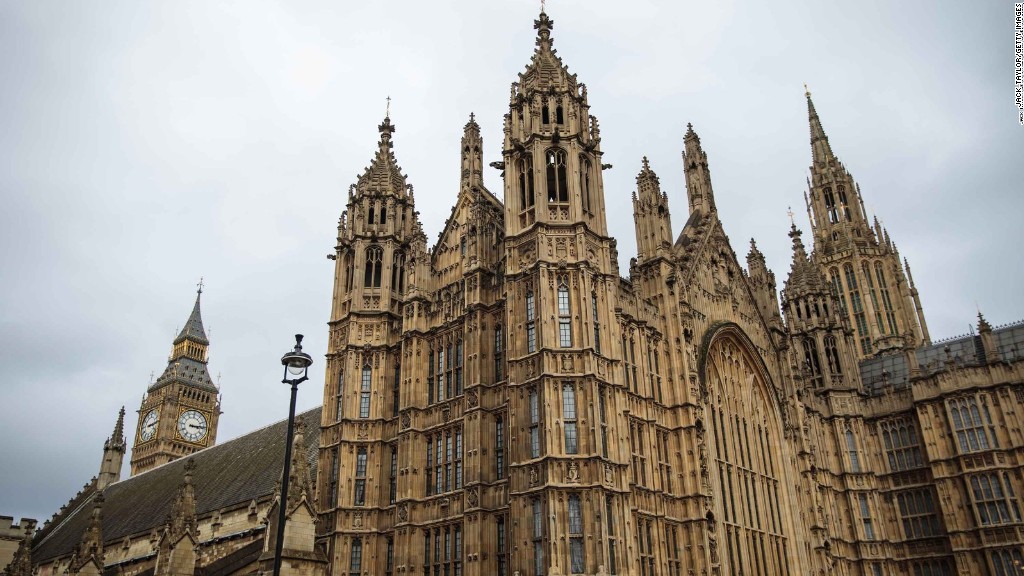
What's it like to know a secret of major national importance?
An elite group of academics found out on Thursday, when they gathered at an undisclosed location in London to formulate a vitally important general election projection.
It was this forecast -- based on exit poll data -- that was announced by major broadcasters in Britain at 10:00 p.m. (5 p.m. ET) offering an authoritative first indication of the election's winners and losers.
And they dropped a bombshell, projecting that U.K. Prime Minister Theresa May could lose her majority in parliament, while still winning most seats. Most opinion polls during the campaign suggested she had a clear lead over the opposition Labour Party.
Total secrecy is required during the number-crunching. The academics are not allowed to bring mobile phones into "the bunker," and they are prohibited from communicating with outsiders until the lockup expires.
"It is quite stressful mainly because of the time constraint," said David Firth, a professor at the University of Warwick who worked on previous projections. "It's not like any other aspect of academic life."
The researchers, led this year by professor John Curtice, used data collected from roughly 30,000 voters at 144 polling stations to create models that predict the outcome of the election.
The data, which is culled from interviews with voters, is delivered to the researchers in spurts -- the first tranche comes after lunch, and the final batch arrives just before 10:00 p.m.
Firth said that a picture of how the election is likely to swing often emerges by the early evening.
But the public isn't told until hours later, when exit poll sponsors BBC, ITV and SKY simultaneously announce the group's projection.
"The highest tension comes at around 9:00 p.m," said Firth, "because the journalists who are going to present the prediction need to be briefed so they can get the story straight in their minds."
Related: General election 2017: Latest updates
The exit poll has typically been much more accurate than Britain's notoriously shoddy opinion polls.
Kieran Pedley, the research director at GFK, which administers the poll on behalf of the broadcasters, said the projections are more accurate because actual voters are surveyed.
"We try to go to the same polling stations each time," he said. "You are trying to model the change in vote in specific areas of the country."
The exit poll missed widely in 1992, but a new methodology has produced broadly accurate results in recent years. In 2015, it predicted that the Conservatives would be the largest party, with a chance of an overall majority.
That was an outcome that few expected -- and many didn't believe until hours later.
"I can tell you -- that is wrong," former Liberal Democrats leader Paddy Ashdown said at the time. "If these exit polls are right, I'll publicly eat my hat."
The accuracy of the projection comes into view relatively quickly. By the time most voters wake up on Friday, many areas will have reported their official results.
That's when the researchers will know if they've succeeded.
"For an academic, this is the ultimate challenge," said Firth. "You make a prediction in front of millions of people, and 10 hours later everyone knows whether you were right or wrong."
